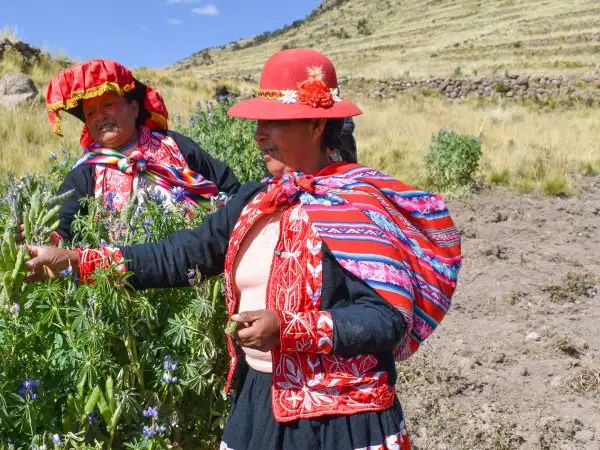
This discussion paper highlights what is wrong with the global food system that produces enough food for everyone yet cannot avert the third global food crisis in 15 years, with 828 million people hungry in 2021, an increase of 150 million since 2019.
The heart of the problem is the industrialised food system focused on increased production as the main measure of success. This model produces vast amounts of food and huge profits for some, but at huge cost to others. It relies on fossil-fuel based chemical fertilizers and environmentally destructive methods, making the global food system is responsible for an estimated 80% of deforestation and a third of greenhouse gas emissions. In turn, the poorest people who have contributed the least to climate change are those who suffer worst, through reduction of crop yields, destruction of lands and livelihoods.
Large agribusiness corporations hold huge power in global food markets, leaving farmers with very little control over what they grow and sell, and at what price. This control is reinforced through billions of pounds of agricultural subsidies and national and international seed laws that increasingly make it illegal for local communities to exchange, grow and distribute seeds. Furthermore, this system is highly vulnerable to shocks that disrupt global supply chains, such as conflict, covid and the impacts of climate change, which result in millions of people unable to afford enough nutritious food to feed themselves and their families, as we have seen in countries like Somalia, Kenya and South Sudan.
The good news is that we know what works. Diverse, local food systems rooted in agroecological approaches are increasingly showing higher yields of diverse crops compared with conventional methods, as well as improved soil health and biodiversity, in particular in places where additional food is desperately needed. We need to reform the food system to support what works.
Priority actions for reform
These include:
Put the needs and voices of farmers at the centre of the food system.
Redefine how we measure success beyond a narrow obsession with food production.
Break dependency on fossil fuel-based fertilizers.
Scale up investment in an agroecological transition with the same urgency and scale as the energy transition.
Reduce the concentration and abuse of power of large-scale agribusiness.
Policy and research
CAFOD's policy team provides briefings, reports and research on our advocacy and lobbying work, plus materials to support our campaigns.


